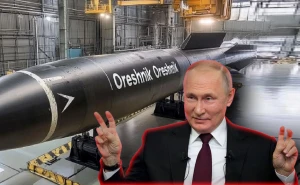
Poland becomes focus of NATO's attention
The war in Ukraine has caused a geopolitical shift in Europe, relocating NATO's "center of gravity" to Central and Eastern Europe: Poland and the Baltic states
The Washington Post reported the information, emphasizing that over the past year, Poland has become a key bulwark in the West's confrontation with Russia.
In addition to hosting Ukrainian refugees, Poland provides aid and arms supplies to Ukraine, is an active supporter of Kyiv's initiatives to join both NATO and the EU, and its leadership criticizes Western Europe's softness toward the Kremlin. Earlier than other European countries, Poland sent German Leopard 2 tanks from its own stockpile to Ukraine and became the first country to provide fighter jets to Kyiv.
Poland is home to a permanent military garrison established by the US in cooperation with NATO and a new giant arms depot with hundreds of American tanks and infantry vehicles.
While France and Germany used to be NATO's traditional "anchors" in Europe, the center of gravity has now shifted eastward, to countries that were once behind the Iron Curtain. It is in this region that "the weight of history is stronger … than in the West, the traumas are fresher and the return of tragedy is felt more keenly," the Washington Post quotes Le Monde columnist Sylvie Kauffmann as saying.
According to Piotr Buras, director of the Warsaw office of the European Council on Foreign Relations, "... we have been right on Russia, we have been right on energy security, we have been right in warning against getting so much dependence on Russia. And we have been ignored — by the Germans and by the others. We have been proven right, and now we want to show it."
Poland's current role contrasts somewhat with the country's strained relations with EU institutions. Before the war, the EU actively criticized Poland's right-wing government for reforming the judiciary and attacking democracy, and the leaders of Poland's ruling Law and Justice party rebuked official Brussels.
Now the Poles emphasize that their accusations were right, because, for example, Germany's policy of excessive dependence on Russian energy imports has proven to be really harmful for Europe.
WP also quotes the current Polish Prime Minister Mateusz Morawiecki as saying that the best protection of nations, culture, social, economic, political and military security can be provided by nation-states, and that other systems are illusory and utopian. This contradicts the beliefs of his Western counterparts who believe that only greater integration is the way forward.
This divergence of positions is unlikely to matter much: Poland will hold elections this year and the ruling party may change. However, regardless of the outcome of the elections, it is unlikely that the country's position on Ukraine will change. Putin has firmly tied Poland to the West, and if the liberal opposition comes to power, this connection may become even stronger, the article’s authors conclude.
- News














































